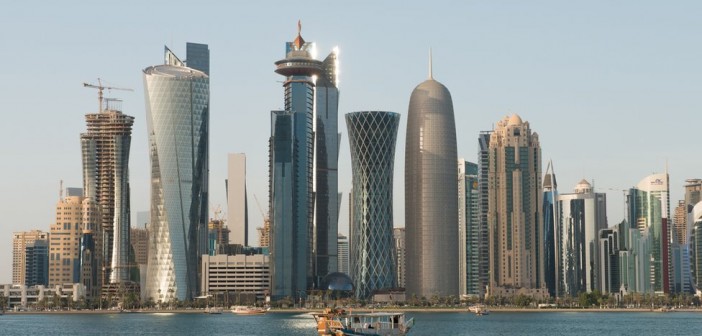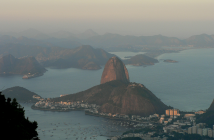Greece is experiencing increasing economic difficulties. With Sunday’s referendum rejecting the EU’s bailout conditions, the issues look set to continue. Greece’s national debt is over €300bn, and there are little signs of a significant decrease in the year’s to come. But one country’s misfortune could be a major opportunity for one region in particular. The countries of the Gulf have a long history of investing in other countries, and real estate is their particular forte. The Shard, striking an imposing silhouette on London’s skyline, is the tallest building in the entire European Union. It is also 95% owned by the State of Qatar. Also in London, the Canary Wharf development is part-owned by the Qatar Investment Authority, the government’s sovereign wealth fund. In Greece, the opportunity for a bargain may entice investors from all over the Gulf to purchase property in Greece.
House prices may have decreased 10% since 2007, but these are not the prime concern of the would-be investor. The tourism sector in Greece is a large part of its economy. Throughout Greece’s financial difficulties, tourism has served as its vital life-blood. 18% of the country’s GDP is owed to tourism. Investors will therefore pay close attention to properties that are focused in this sector. Hotels are a popular acquisition for investors. The Qatar Investment Authority owns classic London hotels Claridges, The Connaught, and The Berkeley. In Greece, the opportunities for tourism investment extend beyond just hotels.
Greece is home to an estimated 6000 islands, of which only 227 are inhabited. It would not be unusual for the Greek government to sell some of its islands in a bid to raise funds.
Similar measures have already been taken. Back in 2010, the Greek government began to list government land, including certain islands for sale. The popular tourist spot of Rhodes had one third of its land still owned by the government. Any land or islands which are sold would be with the hope that the buyers would develop these into luxury tourism sites.
Tourism, though the most attractive, is not the only option. Other commercial real estate could be attractive to Gulf investors, on sale for dramatically lower prices. It has been reported that office buildings once sold at several million, are now on sale for under a million. However, Greece’s economy is still riddled with uncertainty. The rejection of EU-enforced austerity as a condition for a financial bailout holds grave doubts over Greece’s future in the European Union, and its continued use of the euro. Were Greece to move to an independent currency, or exit from the EU, further falls in price would be inevitable. What may look like a good deal now may become a disastrous business decision in the near future. Historically, Gulf investors have bought real estate amid rising property prices. In London, property prices grew by 2.6% the first quarter of 2015. In Greece, it is sharply the opposite. With little opportunity for an increase in the value of their investment on the horizon, an injection of Gulf funds is unlikely to come to the rescue.





